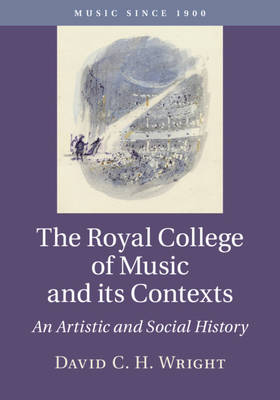
- Afhalen na 1 uur in een winkel met voorraad
- Gratis thuislevering in België vanaf € 30
- Ruim aanbod met 7 miljoen producten
- Afhalen na 1 uur in een winkel met voorraad
- Gratis thuislevering in België vanaf € 30
- Ruim aanbod met 7 miljoen producten
Zoeken
€ 197,45
+ 394 punten
Uitvoering
Omschrijving
Located between the great Victorian museums of South Kensington and the Royal Albert Hall, the Royal College of Music, founded in 1883, has been a central influence on British musical life ever since. This wide-ranging account places the College within its musical and educational environments. It argues that the RCM's significance lies not only in its famous performers and composers, but also the generations of its more anonymous former students who have done so much to improve the musical life of the localities in which they have worked as teachers and animateurs. As a cultural history, this account also captures how significantly society's consumption of music - from new technologies to the altered perspectives of historical and world musics - has changed since the College was founded, and how very different our points of musical reference now are. This study traces the effects of such developments on the College's work.
Specificaties
Betrokkenen
- Auteur(s):
- Uitgeverij:
Inhoud
- Aantal bladzijden:
- 386
- Taal:
- Engels
- Reeks:
Eigenschappen
- Productcode (EAN):
- 9781107163386
- Verschijningsdatum:
- 17/10/2019
- Uitvoering:
- Hardcover
- Formaat:
- Genaaid
- Afmetingen:
- 183 mm x 251 mm
- Gewicht:
- 907 g

Alleen bij Standaard Boekhandel
+ 394 punten op je klantenkaart van Standaard Boekhandel
Beoordelingen
We publiceren alleen reviews die voldoen aan de voorwaarden voor reviews. Bekijk onze voorwaarden voor reviews.











